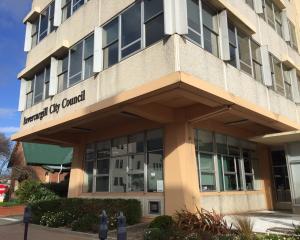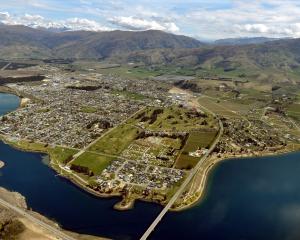
Uncertainties include what exactly the Dunedin City Council’s role might be after Three Waters and resource management reform, and how best to emerge from the shadow of Covid-19. Big issues for the city include how it should continue to respond to climate change, how the council’s relationship with mana whenua might develop, the future for Dunedin Railways and the Taieri Gorge track, and what should be done to foster performing arts and live music. Changes have been happening in Dunedin’s transport network and we asked candidates what should happen from here.
Question 1: How might Dunedin's transport network best be set up for the future?
Question 2: What are your goals and priorities for the council?
BILL ACKLIN
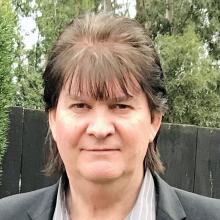
Age: 58.
Occupation: Business development manager.
Question 1: "Does this actually work?" That’s what we should ask of any new transport plan. Personal vehicles of some sort are probably here to stay. Not everyone takes the bus or rides bikes. We also need easier access to the CBD, or people will stop going there. However, a free bus service within the CBD would be great for those who need it. Re-examining the safety of our one-way system is another high priority.
Question 2: To actually listen to people again. Real consultation can rebuild our damaged relationships with business and community groups. Protecting our unique assets is so important, with a strong focus on our tourism attractions. Let’s support new business and celebrate Dunedin’s successes in IT and trade industries. Developing infrastructure for our arts and performing community is equally important. I would also like to see more support for our disabled and ageing residents with accessibility challenges.
SOPHIE BARKER
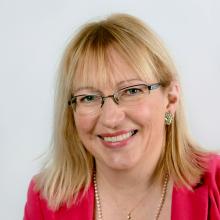
Occupation: Dunedin city councillor. Director. Business owner.
Question 1: Dunedin has dropped the ball on strategic network planning — it’s urgent to create a new Integrated Transport Strategy (dates from 2013). It’s supposed to be reviewed every five years. This hasn’t happened, leading to a mixed, knee-jerk approach to transport planning, creating resident frustration.
Dunedin is a growing city, which needs a modern transportation system for a city that works for everyone, no matter how they choose to travel. Create a new integrated plan now!
Question 2: Goal: NZ’s most liveable city.
1. Rebuild trust with our community through open communication and authentic, transparent common-sense leadership. Deliver promised strategies. Ensure visible action and accountability.
2. Spark economic development. Refresh and action strategy to lead city prosperity and jobs.
3. Rates affordability. Low rates increases. Make council companies accountable.
4. Quality of life. Target-focused actions to make New Zealand’s most liveable city i.e. Infrastructure, housing, transport.
5. Establish climate change action plan now!
JETT GROSHINSKI
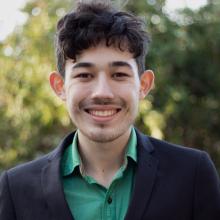
Age: 19.
Occupation: Student.
Question 1: Dunedin’s transport network should be built upon sustainable practices; we need to advocate the use of public transport by improving its system. The Dunedin City Council needs to take back control of the bus system from the Otago Regional Council. Road safety should be an important focus for the council. I propose variable speed limits in parts of Dunedin where we have frequent crashes due to weather events and congestion.
Question 2: My priorities as mayor of Dunedin would be to focus on co-operation between the public, staff, and the council. Due to the significance of Dunedin’s central city transport issues, it is important to encourage the free-fares movement. Making fares free for all Gold Card holders no matter the time of day is important. Parking needs to be improved within the city centre. If elected, I would make it a priority to listen to everyone.
AARON HAWKINS
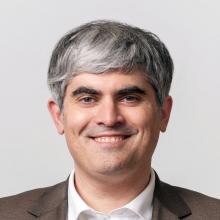
Age: 38.
Occupation: Mayor.
Question 1: Dunedin is growing. We need a transport network that can support a larger population, and that gives our community genuine choice in how they get around.
An efficient and affordable bus service, and safer cycling and walking options, will make it easier for more people to make more trips differently.
It’s a critical part of meaningful climate action, and in ensuring that everyone has equitable access to everything the city has to offer.
Question 2: We’ve got billions of dollars being invested into Dunedin. We need to be able to attract the workforce to deliver it.
This is our opportunity to shape the city with the future in mind, and to build communities that are resilient.
I’m proud to have led a council that has invested in Dunedin; has taken climate action seriously; and has prioritised our relationship with mana whenua.
There’s plenty more to do. Let’s keep going.
CARMEN HOULAHAN
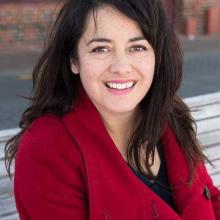
Age: 52.
Occupation: Dunedin city councillor.
Question 1: Make public transport free for students and unemployed. Daily passenger rail service from Mosgiel to Dunedin. Express bus or rail service going directly from town to the airport. A loop bus around the CBD and university that connects to a transport hub in St Andrew St providing parking for cars, electric bikes, and electric charging stations.
George St remains two-way so traffic can flow, and the one-way, by the hospital, remains one-way.
Question 2: Support businesses and arts sector to recover and grow. More action less talk on climate change mitigation. Create a sustainable city for our future. Engage with mana whenua. Improve communication so residents feel engaged and listened to. Support CODE (Centre of Digital Excellence) and Start up Dunedin to create jobs for our youth. Sensible spending and a cap on rates. Revert George St to two-way and keep the one-way one-way.
MANDY MAYHEM BULLOCK
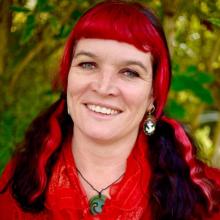
Age: 49.
Occupation: Celebrant and Waikouaiti Coast Community Board elected member.
Question 1: I agree with objectives set out in the DCC Spatial Plan strategic direction "Accessible and Connected City".
That Dunedin has an integrated, affordable, responsive, effective and safe transport network for all modes.
Urban form and design that creates high levels of accessibility for all residents.
Affordable, regular and reliable bus services and free looped routes around the city.
Infrastructure in transport renewals should remain focused on maintaining the road network to appropriate levels of service.
Question 2: The newly elect council will need to focus on the DCC social wellbeing strategy.
Current government reforms will change the way the council operates. There is an opportunity to really focus on wellbeing. I am driven to create a welcoming, inclusive and accessible city where all of our residents feel valued and listened to.
A council that takes a holistic and strategic approach to decisions by considering social, cultural, environmental and economic wellbeing for all.
DAVID JOSEPH MILNE
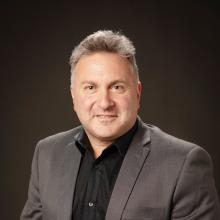
Age: 48.
Occupation: Company director.
Question 1: Defining a transportation network to include railways, air routes, pipelines, aqueducts, and power lines. And roading, to permit or constrain objects moving in space and time.
"Get the basics right". Safety, maintenance, functionality.
Increase flow of people and traffic around harbour. Keep SH1 north and south two lanes each way. Promote cycling and walking. More park and ride spaces adjacent to the shopping centre. Jump on small electric buses from there. Keep, increase car park numbers.
Question 2: Reduce ratepayers’ payments by 5%, no increases the next three years after reduction. No increase in salaries for councillors and mayor for the next three years.
Increase morale and team fit at the DCC. Reduce debt by identifying cost savings and streamlining of systems within the DCC and its subsidiaries.
Developing the Dunedin economy. Improving the natural environment. Increase the wellbeing of our community. Focus on the very young, the over 70s and the handicapped.
JULES RADICH
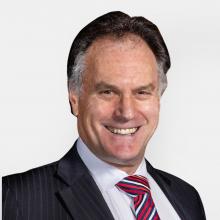
Age: 67.
Occupation: Dunedin city councillor.
Question 1: Most people use and need cars to get around so they must be catered for, not rendered unusable. The one-way system must be retained and car parking improved to ensure business viability and hospital access. Park and ride expenditure is a waste of ratepayers’ money. Public transport is about patronage, not power plays. Convenience and reliability are key, not price. This can be achieved with small electric buses starting with a CBD loop run.
Question 2: Our Team Dunedin vision for the city is to make it welcoming, vibrant and sustainable.
My strategy as mayor is to actively listen to residents, take positive action for improvement, and always care for our community. Tactics include practical plans for roads, transport and parking. South Dunedin protected, not neglected. Essential infrastructure attended to. Sensible Three Waters strategy. Landfill alternatives to save us millions. Economic growth and tourism prioritised. Fiscal prudence and debt control.
RICHARD SEAGER
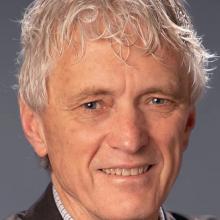
Age: N/A.
Occupation: N/A.
Question 1: Richard Seager will provide strong leadership to lead council in making Dunedin better with an emphasis on urban development, preservation of our wonderful heritage and the improvement of the city's transport issues with an emphasis on cycling and in the longer term a return of the ferries and trams that used to augment, in fact were the mainstay, of this city's travel options. Please see more at my blog at https://plebeianresistance.substack.com/s/environment
Question 2: I will work to integrate Dunedin with the wider Pacific. I will fight against the destruction of heritage and will attempt to make Dunedin a city of trams and cycles again. I will focus on South Dunedin and attempt to put a halt to land banking and abandonment of buildings in Dunedin. I will support attempts at beachfront resilience and women’s/girls’ rights to their own spaces at such places as the Moana Pool.
PAMELA TAYLOR
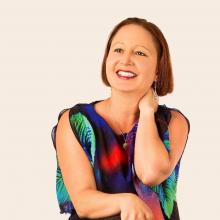
Age: N/A.
Occupation: N/A.
Question 1: By 2050 jet boats will be one of the fastest, and most enjoyable ways to get around the many prosperous waterfront suburbs of Dunedin. Motorbikes, go-karts, Segways and luges will also be popular for the exploration of the natural surrounding mountains. Helicopter flights for pleasure will become normal. Dunedin City Council will begin this transition towards jet boats, motorbikes, Segway, luges and helicopters by investing in these future transport forms.
Question 2: By 2050 the Dunedin City Council will be very prosperous, able to lend to residents, and borrowing from no-one. It will have preserved water and food sovereignty for the people of Dunedin. It will have preserved full property rights and removed all red tape resource management regulations. It will have preserved true democracy where each person has equal civil and political rights. It will be a city of peace, of love and of light.
LEE VANDERVIS
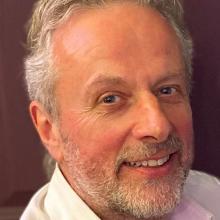
Age: 67.
Occupation: N/A.
Question 1: Planning and funding of Dunedin’s transport network, which includes all modes of transport from cars, trucks, bicycles, buses, and shipping, should all be planned and funded through one authority ensuring that the network is integrated and needs are properly prioritised. This would be best achieved by a DCC/ORC unitary council informed by regular referendums that gauged real needs rather than current top-down ideologies with enormous spending on mostly unused cycleways at the expense of car-parking.
Question 2: My priorities for the council are to attract investment to Dunedin, keep our Three Waters infrastructure from government takeover, upgrade our one-way street system to three lanes each direction with a 60kmh speed limit, add more parking, stop rates and debt rises by reducing waste, cut the massive new cycleway spend, restructure council companies to provide us with dividends rather than debts, and make our bureaucracy work within current budgets as we all have to.



